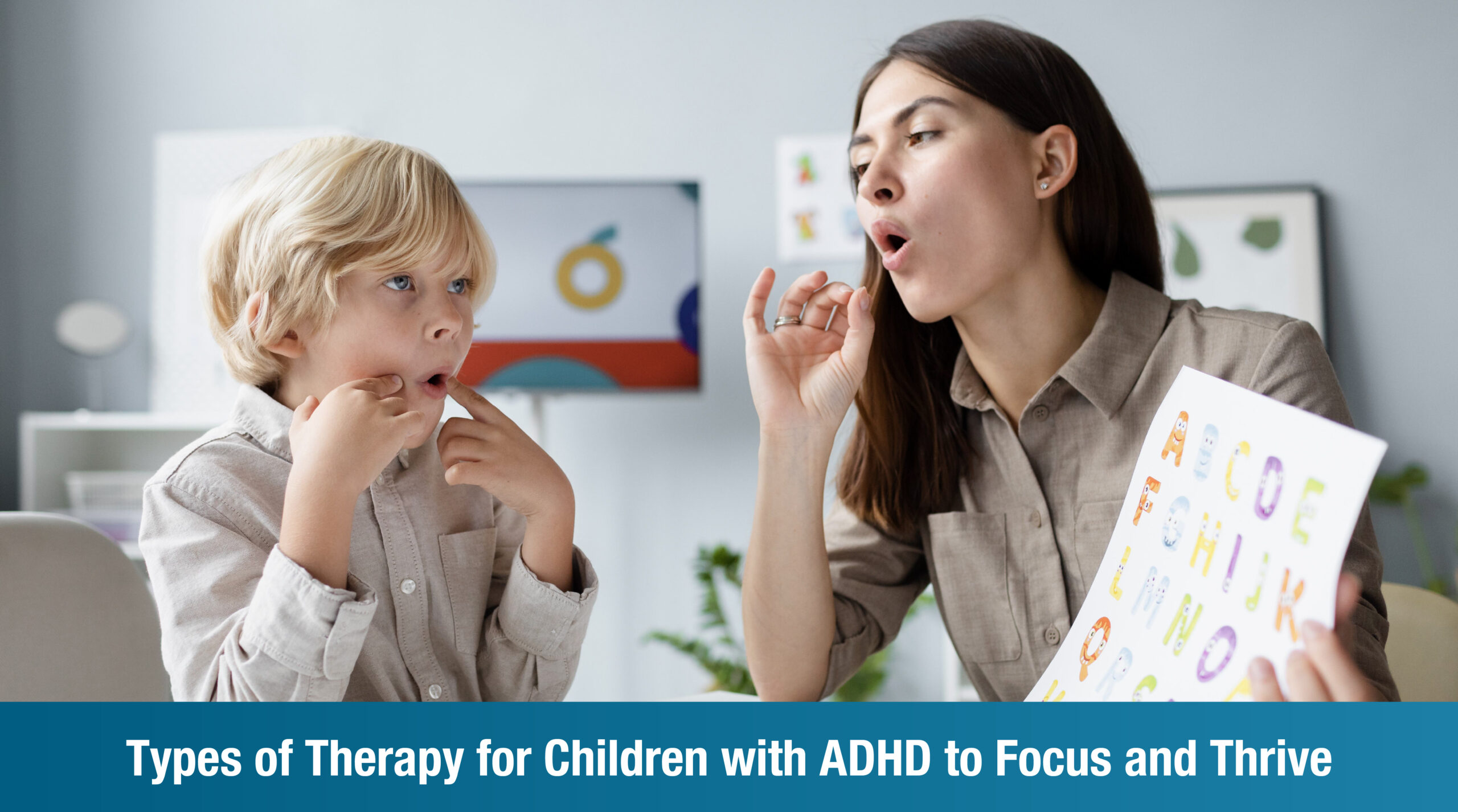
Attention Deficit Hyperactivity Disorder (ADHD) is a complex neurodevelopmental condition that often affects children in school-age years, making it difficult for them to concentrate, manage impulses, and interact socially. While medication can be part of a treatment plan, therapy is critical for helping children build the skills they need to thrive at home, school, and beyond.
In this blog, we’ll explore the most effective ADHD therapy options for children—including behavioral therapy, CBT, occupational therapy, and play-based approaches—as well as how parent involvement can improve long-term outcomes.
Understanding ADHD and Why Therapy Matters
ADHD presents in different forms: inattentive, hyperactive-impulsive, or a combination of both. These symptoms can interfere with everyday life, leading to frustration for both children and their caregivers. Therapy for ADHD teaches children how to manage emotions, follow routines, and improve focus—giving them practical tools for success.
Behavioral Therapy for Managing ADHD Symptoms
Behavioral therapy focuses on changing disruptive behaviors and reinforcing positive ones.
Parent Training in Managing ADHD Behavior
Parents play a crucial role in implementing behavioral strategies at home. Techniques include:
- Creating structured routines
- Offering praise and rewards for positive behavior
- Using consistent consequences for rule-breaking
Classroom Behavior Interventions for ADHD
Teachers and school staff are trained to:
- Offer clear instructions and expectations
- Use behavior charts and token systems
- Allow movement breaks or quiet zones
Cognitive Behavioral Therapy (CBT) for ADHD
CBT helps children recognize how their thoughts influence behavior. Through structured sessions, they learn:
- Coping skills for frustration
- How to slow down impulsive reactions
- Positive self-talk to improve confidence
CBT is especially helpful for older children who are aware of their challenges and ready to reflect on their feelings.
How Play Therapy Supports Emotional and Social Growth
Play therapy is especially effective for younger children with ADHD. It uses games, storytelling, and toys to help children:
- Express emotions
- Practice self-regulation
- Improve communication skills
Therapists observe the child’s play patterns to understand emotional needs and help them navigate their inner world more effectively.
Occupational Therapy for Improving Focus and Skills
Occupational therapy for ADHD targets:
- Sensory processing difficulties
- Fine motor coordination
- Independence in daily routines
Activities may include obstacle courses, handwriting practice, or using visual schedules to improve time management.
Speech and Language Therapy for ADHD and Communication Challenges
Many children with ADHD struggle to organize their thoughts or follow conversations. Speech therapy focuses on:
- Improving verbal expression
- Enhancing listening and attention skills
- Building social communication abilities
How Plexus Provides Holistic Therapy Programs for ADHD
At Plexus, we offer a multidisciplinary ADHD therapy program in Bangalore and Hyderabad that includes:
- Behavioral therapy
- CBT sessions
- Play-based occupational therapy
- Speech-language support
- Parent training and counseling
Our therapists design personalized ADHD treatment plans that grow with the child, adapting to school challenges, developmental changes, and family dynamics.
WhatsApp: +91 89048 42087
Hyderabad: +91 78159 64668 | Bangalore: +91 82299 99888
FAQ
What types of therapy are most effective for children with ADHD?
Behavioral therapy, CBT, occupational therapy, and play therapy are among the most effective therapies for ADHD in children. The right mix depends on the child’s symptoms and age.
What are the different types and presentations of ADHD?
There are three types: inattentive, hyperactive-impulsive, and combined. Each presents unique behavioral and cognitive challenges.
Can ADHD symptoms be successfully managed with therapy?
Yes. While ADHD isn’t curable, therapy helps children learn how to manage their symptoms, reduce disruptions, and improve functioning across all areas of life.
What are the most common early signs of ADHD in children?
Early signs include excessive fidgeting, impulsive behavior, daydreaming, difficulty following instructions, and frequent emotional outbursts.
What causes ADHD in children?
ADHD is believed to be caused by a mix of genetic, neurological, and environmental factors. It is not caused by poor parenting or sugar intake.
About the Author
Dr. Kanishka Sharma, MOT
Therapy Coordinator and Head of Department of Rehabilitation
Dr. Kanishka Sharma is a leading expert in pediatric and adult neurorehabilitation with extensive experience in managing ADHD, autism spectrum disorders, and developmental delays. As the Head of Rehabilitation at Plexus, she leads a multidisciplinary team delivering personalized therapy plans that empower children and their families.










